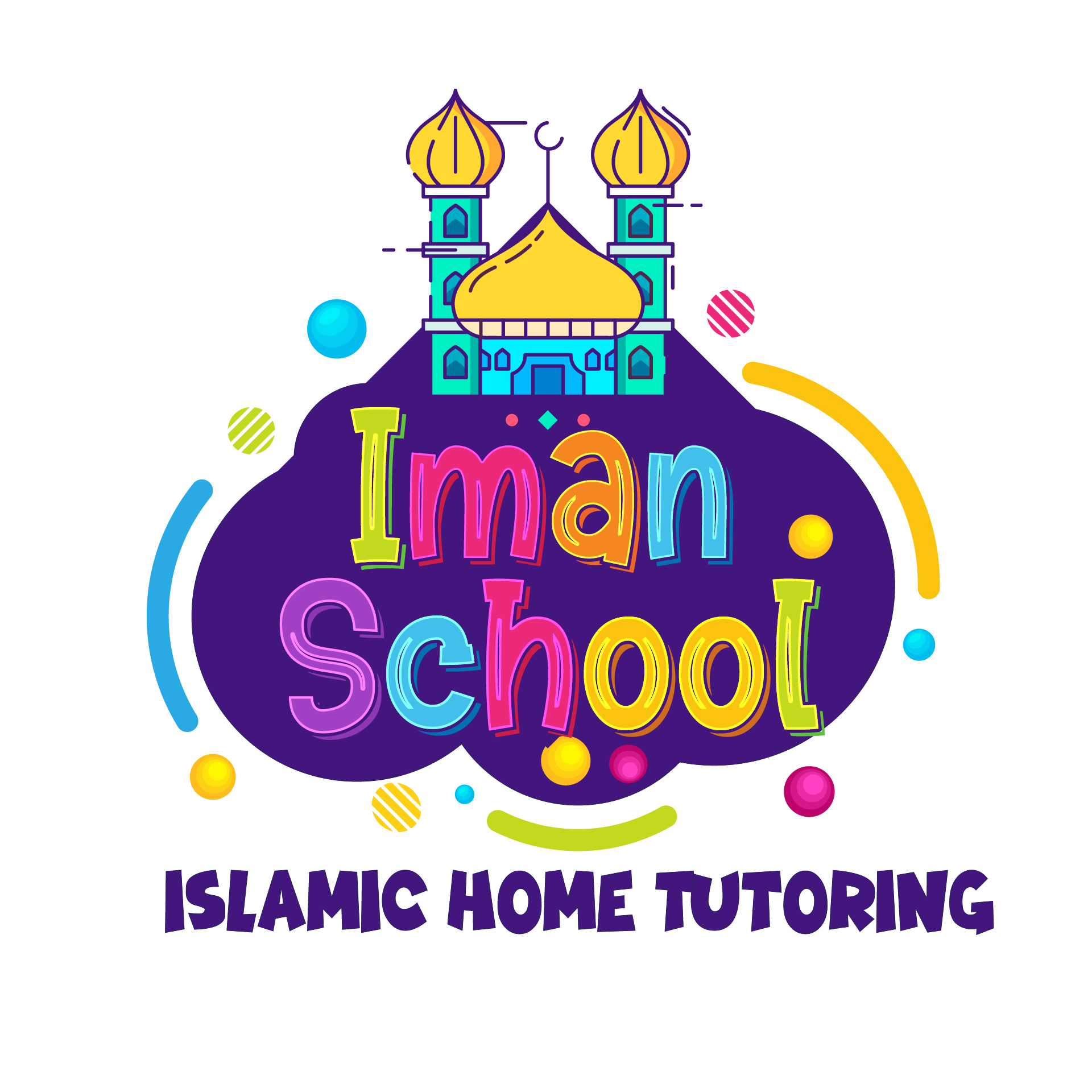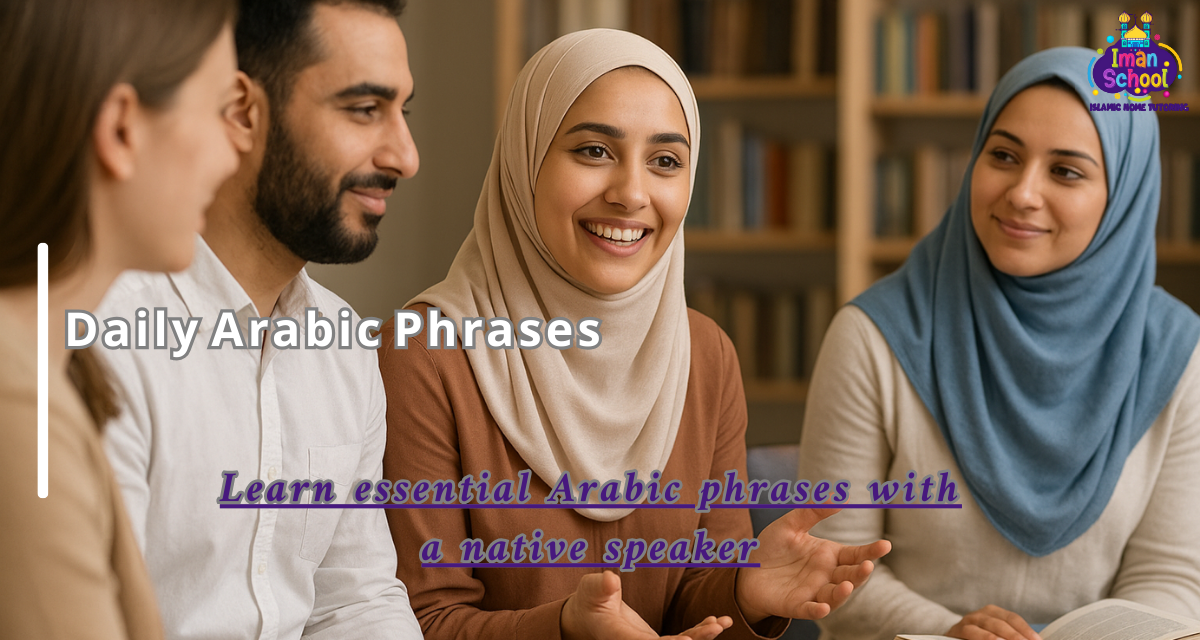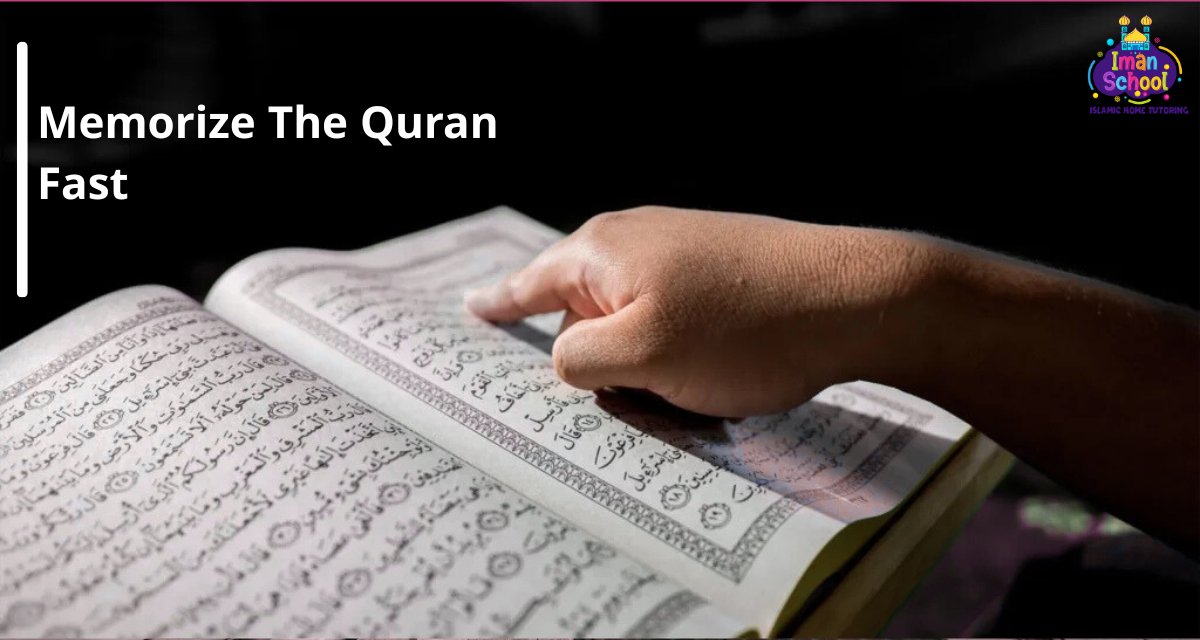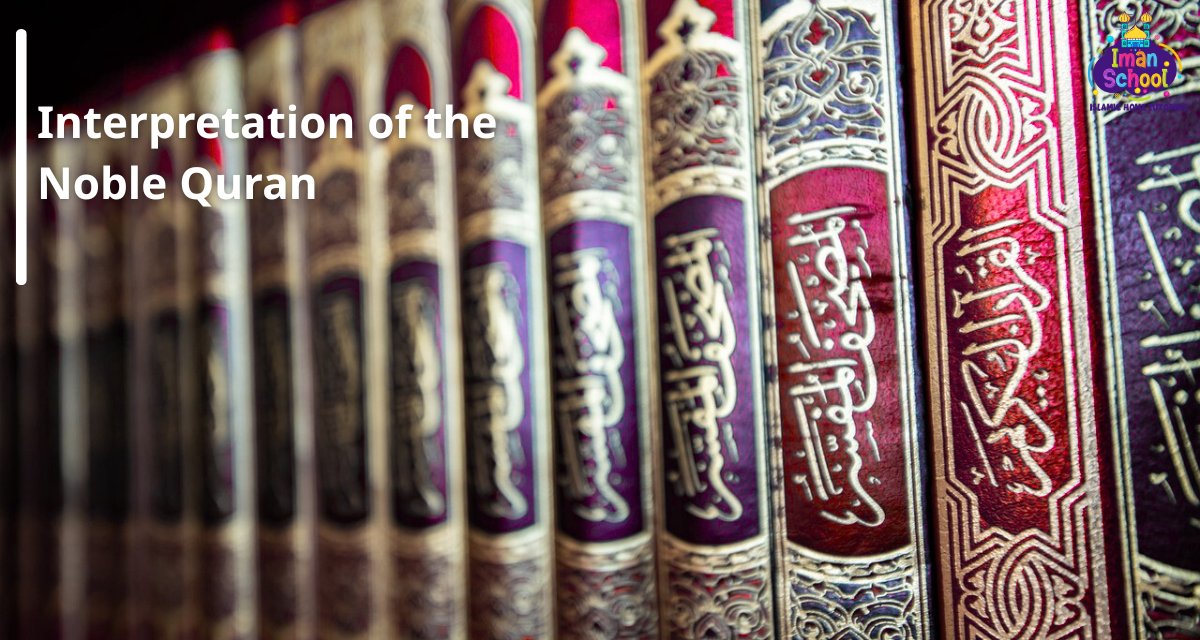For anyone looking to connect with the rich culture of the Arab world, a great first step is to learn daily Arabic phrases. These simple words and sentences are the building blocks of communication, allowing you to greet people, express gratitude, and navigate everyday situations. Whether you're planning a trip to the UAE, engaging with a neighbor, or starting a new language-learning journey, mastering daily Arabic phrases will open doors and build bridges.
Learning Daily Arabic Phrases with a Native Speaker
The best way to learn Arabic is with a native speaker. While apps and books can help, an online Arabic tutor provides a level of authenticity that is unmatched. A native speaker can teach you the subtle nuances of pronunciation, intonation, and cultural context. This is especially true for regional dialects like learn Levantine Arabic or Egyptian Arabic.
At Iman School, our tutors are native speakers who specialize in teaching daily Arabic phrases and conversation. They can help you move from simply memorizing words to truly understanding and using them in a real-world context.
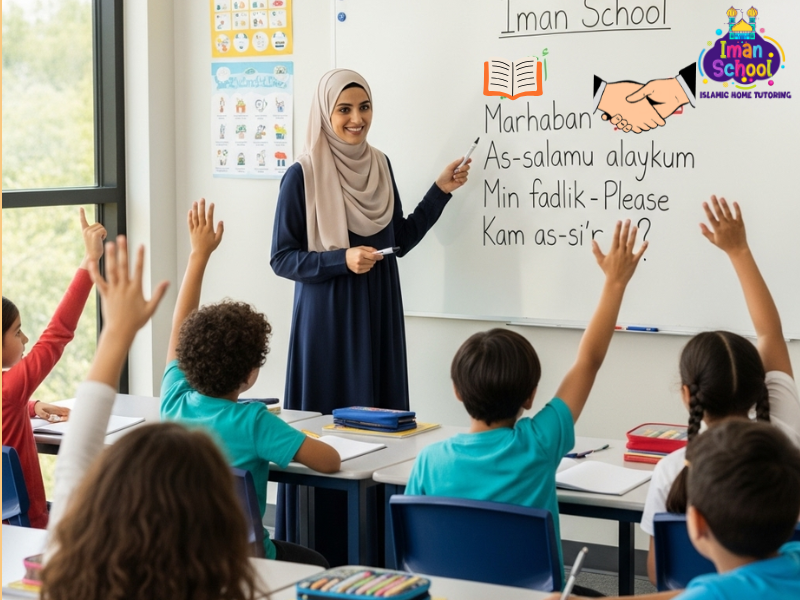
Top 10 Arabic Greetings and Goodbyes
Greetings are the foundation of any conversation. Here are the most essential Arabic greetings and farewells you need to know.
-
As-salamu alaykum (السلام عليكم): The universal Islamic greeting, meaning "Peace be upon you." The response is Wa alaykum as-salam (وعليكم السلام).
-
Ahlan (أهلاً): A simple and very common greeting, meaning "hello." The response is also Ahlan.
-
Marhaban (مرحباً): Another popular way to say "hello."
-
Sabah al-khayr (صباح الخير): Good morning. The response is Sabah an-noor (صباح النور).
-
Masa' al-khayr (مساء الخير): Good evening. The response is Masa' an-noor (مساء النور).
-
Kayfa haluk? (كيف حالك؟): How are you?
-
Alhamdulillah (الحمد لله): "Praise be to Allah," a common response to "how are you?"
-
Ma'a as-salama (مع السلامة): A common farewell, meaning "with peace."
-
Ila al-liqa' (إلى اللقاء): Until we meet again.
-
Tusbah ala khayr (تصبح على خير): Good night.
Learning these easy Arabic phrases is the perfect starting point for any beginner.
Basic Arabic Phrases for Travelers
If you're traveling to an Arab country, knowing some travel Arabic phrases can make your trip much smoother. These are great to have in your pocket, and they are also the first topics you'll cover in any Arabic for beginners online course.
-
Na'am / La (نعم / لا): Yes / No.
-
Min fadlik (من فضلك): Please.
-
Shukran (شكراً): Thank you.
-
'Afwan (عفواً): You're welcome.
-
Ayna al-hammam? (أين الحمام؟): Where is the bathroom?
-
Kam al-s'ir? (كم السعر؟): How much is this?
-
Hal tatakallam al-ingliziya? (هل تتكلم الإنجليزية؟): Do you speak English?
How to Introduce Yourself in Arabic
A basic introduction is one of the most important daily Arabic phrases. Here's a simple dialogue to help you introduce yourself and start an everyday Arabic conversation.
-
Marhaban, ana [Your Name]. (Hello, I am [Your Name].)
-
Tasharrafna. (Nice to meet you.)
-
Min ayna anta/anti? (Where are you from?)
-
Ana min [Your Country]. (I am from [Your Country].)
This simple exchange can be the beginning of a great conversation. These Arabic dialogue examples are fundamental to any learn conversational Arabic course.
Essential Arabic Phrases for the Souq (Market)
The souq (market) is a vibrant part of Arab culture. Knowing these practical Arabic phrases will help you haggle and navigate with confidence.
-
Kam al-s'ir? (كم السعر؟): How much?
-
Ghali jiddan. (غالي جداً): It's very expensive.
-
Hal yujadu ay shey' akhar? (هل يوجد أي شيء آخر؟): Is there anything else?
-
Hal ladayka al-taghdhiyah? (هل لديك التغذية؟): Do you have change?
-
Uridu hadha. (أريد هذا): I want this.
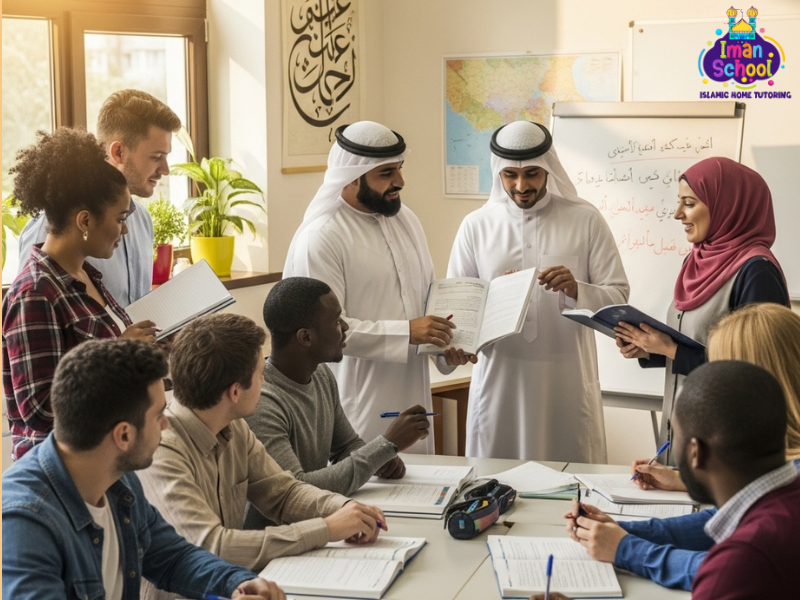
Arabic Phrases for Saying Thank You and You're Welcome
Showing gratitude is a universal sign of respect. Mastering these simple Arabic sentences will make a great impression.
-
Shukran (شكراً): The most common way to say "thank you."
-
Shukran jazilan (شكراً جزيلاً): Thank you very much.
-
'Afwan (عفواً): A versatile phrase for "you're welcome" and "excuse me."
-
La shukran 'ala wajib (لا شكر على واجب): No thanks for a duty/It's no trouble.
Common Arabic Phrases Used in Daily Life
These common Arabic words and phrases are used frequently in daily conversation and can help you sound more natural.
-
Insha'Allah (إن شاء الله): If Allah wills. Used to express hope or a future action.
-
Masha'Allah (ما شاء الله): What Allah has willed. Used to express admiration or appreciation for something.
-
Alhamdulillah (الحمد لله): Praise be to Allah. Used to express gratitude or relief.
-
Subhan'Allah (سبحان الله): Glory be to Allah. Used to express awe or surprise.
-
Yalla (يلا): Let's go. A very popular and informal phrase.
-
Khalas (خلاص): Enough/Finished.
These are essential parts of any everyday Arabic conversation.
The Difference Between Formal and Informal Arabic Phrases
Understanding the difference between formal and informal Arabic is key to using daily Arabic phrases correctly. Formal Arabic, or Modern Standard Arabic (MSA), is used in media, books, and formal speeches.
Informal Arabic, or dialects, is used in everyday conversation. For example, a formal greeting like Marhaban is common, but in a specific dialect, it might be replaced by a local phrase. A good online Arabic tutor will teach you both and help you navigate when to use each. This is a crucial aspect of mastering online Arabic classes for adults.
Online Arabic Classes: The Best Way to Master Daily Phrases
If you want to learn Arabic online, a structured course is the best way to learn Arabic. It gives you a clear path from the basics to fluency. Whether you're a beginner learning the alphabet or an advanced student looking to speak Arabic fast, online classes provide the flexibility and one-on-one attention you need. With an online Arabic tutor, you can get instant feedback on your pronunciation and practice everyday Arabic conversation with a native Arabic speaker online.
At Iman School, our online Arabic classes are designed to help you master daily Arabic phrases and beyond. We offer programs for all levels, from free Arabic lessons for beginners to advanced courses for professionals. Our curriculum includes grammar, conversation, and practical application, so you can build a solid foundation and speak with confidence.
Your First Arabic Conversation: What to Say
Don't be afraid to try out your new skills! Your first Arabic conversation will be simple and rewarding. Start with a greeting, introduce yourself, and ask how the other person is. You can follow up with a simple question about their day or their country of origin. The most important thing is to try. Even a few basic Arabic phrases for beginners can make a huge difference.
Explore our full Arabic curriculum
Whether you are looking for Arabic for kids phrases or you're an adult looking to master daily Arabic phrases, Iman School has a program for you. We are dedicated to providing the highest quality language instruction, with certified native tutors who make learning fun and effective. Our courses cover both modern standard and spoken Arabic, so you can choose the right path for your goals.
Iman School is the ideal place to learn Arabic online and master the common Arabic words that will change the way you connect with the world.
